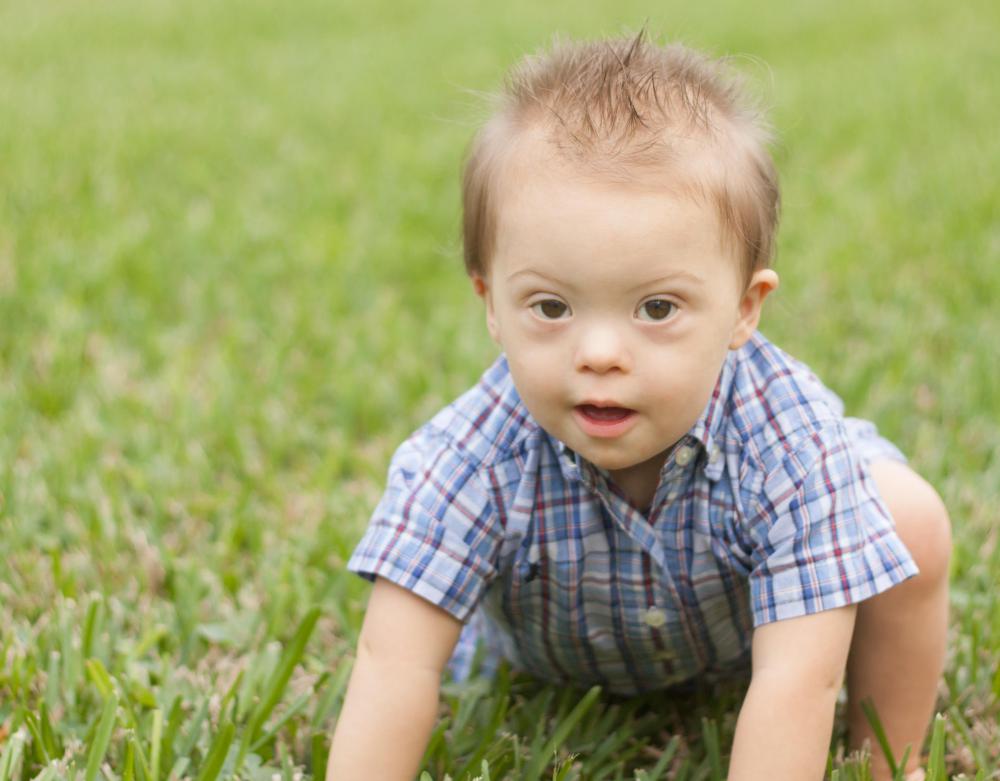At WiseGEEK, we're committed to delivering accurate, trustworthy information. Our expert-authored content is rigorously fact-checked and sourced from credible authorities. Discover how we uphold the highest standards in providing you with reliable knowledge.
What are the Different Types of Down Syndrome Tests?
Down syndrome is genetic disorder that creates an extra copy of chromosome 21 in a person's cells, and it is the most common condition that causes birth defects. Most Down syndrome tests are performed during pregnancy, and uses a combination of blood tests and an ultrasound to check the levels of chemicals and hormones and to observe any characteristics that may indicate that the fetus has Down syndrome. Tests are also performed after birth, but usually only if the infant is born with physical features that are characteristic of an infant with the condition.
These tests can be completed as early as the eleventh week of pregnancy, but there is a higher false-positive rate than tests completed during the second or third trimester. During the first trimester, a NHS fetal anomaly screening program is done using an ultrasound and blood test. The physician examines the fetus’ neck and measures the amount of fluid contained within the tissue, which is known as a nuchal translucency screening. A fetus born with Down syndrome usually has a larger amount of fluid than those born without the disease. Blood tests are done with the ultrasound to test for abnormal levels of protein-A (PAPP-A) and hormone chorionic gonadotropin (HCG).

During the second trimester, the Down syndrome tests also require an ultrasound screening for nuchal translucency and a blood test. The blood test will test not only for PAPP-A and HCG, but it will also determine the levels of pregnancy chemicals alpha-fetoprotein, ertriol, and inhibin A. If these levels are abnormal or indicate that the fetus may have the genetic disorder, more conclusive tests can be ordered to confirm the results.

Chorionic villus sampling (CVS) is a procedure where a biopsy of the placenta, which contains the same genetic material as the fetus, is examined for the extra chromosomes. The procedure can be done as early as the tenth week of pregnancy, but it does carry the risk of miscarriage. CVS can also test for other chromosomal conditions, such as cystic fibrosis and hemophilia.

Aminocentesis is another form of the Down syndrome tests that collect amniotic fluid in order to evaluate the fetal chromosomes. A needle is inserted through abdomen into the amniotic sac to gain a sample of the fluid for testing. This procedure is not usually done until the fourteenth or fifteenth week of pregnancy.
Once the infant has been delivered and presents symptoms of the condition, other Down syndrome tests can be performed. Signs of the genetic disease include muscle weakness, slanted eyes, a flat profile, a single crease in the palm of the hand, and small ears or mouth. The physician will order a karyotype to determine if there is a chromosomal abnormality in the infant’s cells.
AS FEATURED ON:
AS FEATURED ON:















Discuss this Article
Post your comments